Biotin (Vitamin B7) Injection
Product Overview
Biotin, also known as vitamin B7 or vitamin H, is a water-soluble B-complex vitamin essential for the metabolism of carbohydrates, fats, and proteins.[1] It acts as a coenzyme in various enzymatic reactions and is often promoted for supporting healthy hair, skin, and nails, although scientific evidence for these cosmetic benefits in individuals without biotin deficiency remains limited.[2][3]
Biotin deficiency is quite rare in healthy populations, as the vitamin is available in many foods and also produced by gut bacteria. When biotin deficiency does occur (for example, due to genetic enzyme disorders or prolonged consumption of raw egg whites), it can lead to symptoms such as thinning hair (alopecia), a scaly red rash around the eyes, nose, and mouth, and neurologic issues like fatigue, depression, or numbness.[3]
Biotin (Vitamin B7) Injection is a compounded sterile solution intended to treat or prevent biotin deficiency in patients who cannot maintain adequate levels through diet or oral supplementation. This formulation is available by prescription only and is prepared in a concentration of 10 mg/mL, typically dispensed in multi-dose vials.
Being a 503A compounded medication, biotin injection is not an FDA-approved manufactured drug product but is custom-made by compounding pharmacies for individual patient needs. It may be prescribed in cases of confirmed biotin deficiency or certain medical conditions, and while it is sometimes used in hopes of improving hair or nail growth, its efficacy in otherwise healthy individuals remains unproven.[2][3]
There is no one-size-fits-all dosage for biotin injections; the appropriate dose and frequency should be determined by the prescribing healthcare provider based on the individual patient’s needs. In general, biotin injections are used when oral supplementation is insufficient or not feasible (for example, in patients with malabsorption or on total parenteral nutrition).
For treating confirmed biotin deficiency, clinicians often administer biotin in the range of several milligrams per day until the deficiency is corrected (for instance, 5-10 mg daily).[14] In severe or inherited forms of biotin deficiency (such as biotinidase deficiency), even higher daily doses may be employed, and lifelong supplementation can be necessary under medical guidance.
Biotin injections are typically given intramuscularly (into muscle) or intravenously, and they must be prepared and administered by a qualified healthcare professional.[14] The injection form bypasses the gastrointestinal tract, ensuring 100% bioavailability of the vitamin. A common regimen for acquired biotin deficiency might involve daily or twice-weekly injections initially. Once biotin levels and symptoms normalize, a physician may transition the patient to a maintenance dose or oral biotin.
For general wellness or adjunctive support (such as attempts to improve hair or nail strength in someone without a documented deficiency), there is no established dosing protocol for biotin injections. In such cases, some practitioners might prescribe a weekly or monthly intramuscular biotin shot, but this is empirical and should be approached with caution since evidence of benefit is lacking.
Notably, regulatory authorities have not set a Recommended Dietary Allowance (RDA) for biotin beyond the basic nutritional requirement because additional biotin is not proven effective unless a deficiency exists. A healthy diet typically provides the adequate intake (30 µg per day for adults) needed for normal physiology.[15] Therefore, high doses of biotin (in the tens or hundreds of milligrams) are generally reserved for research settings or specific medical conditions like certain metabolic disorders or experimental therapies (e.g., very high-dose biotin has been investigated in multiple sclerosis).
In all cases, patients should follow their physician’s dosing instructions for biotin injection. If a dose is missed, the patient should contact their healthcare provider for advice rather than doubling up doses. Therapy should be continued for as long as the provider deems it necessary to resolve the deficiency or achieve the desired clinical effect.
Because biotin has an excellent safety profile, there is flexibility in dosing, but it should always be guided by medical expertise to ensure that the injection is truly needed for the patient.[15]
Biotin’s mechanism of action in the body stems from its role as an essential cofactor for several carboxylase enzymes involved in key metabolic pathways.[4][5] In human cells, biotin is covalently attached to five specific carboxylase enzymes that catalyze critical steps in the metabolism of fatty acids, glucose, and amino acids.[4]
For example, biotin-dependent enzymes facilitate the conversion of pyruvate to oxaloacetate (an important step in gluconeogenesis), the synthesis of malonyl-CoA from acetyl-CoA (the first step in fatty acid biosynthesis), and the catabolism of certain amino acids into Krebs cycle intermediates.[5] Through these biochemical actions, biotin helps the body generate energy and synthesize necessary fatty acids and glucose.
In addition to its metabolic functions, biotin may also influence gene regulation: it can attach to specific lysine residues on histone proteins (a process known as histone biotinylation), thereby potentially affecting chromatin structure and gene expression.[5] This dual role serving as a coenzyme for carboxylases and modulating gene activity underlies biotin’s importance in cellular function.
Biotin is a water-soluble vitamin, so it is not stored in large amounts; any excess is rapidly excreted in the urine. This property contributes to its wide safety margin, as the body efficiently eliminates surplus biotin and thus prevents accumulation or toxicity.[5]
Biotin (vitamin B7) is generally regarded as a very safe nutrient with no well-defined contraindications for its use.[6][7] There are no known disease states or conditions in which biotin supplementation is explicitly contraindicated, since biotin is a natural vitamin required for normal metabolism.[6]
The only notable exception is that biotin should not be used in anyone with a known hypersensitivity or allergy to biotin or any ingredients in the injection formulation (such as the diluent or preservatives), though such cases are exceedingly rare.[6] In practice, biotin injections are well tolerated by most individuals.
Even high doses of biotin have not demonstrated toxic effects, so there is no strict upper limit for safety established in humans.[7] Nevertheless, it is prudent for healthcare providers to evaluate each patient’s context. For example, if a patient has had previous allergic reactions to vitamin supplements or injection components, biotin injections would be avoided in that patient.
Overall, aside from potential hypersensitivity, there are no absolute contraindications to biotin therapy on record.[6][7]
Biotin is generally very well tolerated, and adverse effects are uncommon even at high doses. No severe toxicity has been observed from biotin supplementation in humans. In fact, the Food and Nutrition Board did not establish an upper tolerable intake level for biotin because no adverse effects were noted at even very large intakes.[10]
Clinical studies have reported no harmful effects with chronic daily doses as high as 200 mg (many times the nutritional requirement), indicating a wide safety margin for this vitamin. Most people can take biotin without any side effects. In rare cases, mild gastrointestinal upset has been reported; for example, some individuals taking high doses may experience nausea, cramping, or diarrhea, but these symptoms are infrequent and usually transient.[10]
There have been no documented reports of serious organ toxicity or systemic reactions caused by excess biotin. A single unusual case report did describe a life-threatening eosinophilic pneumopericardium effusion (a type of fluid accumulation around the lungs and heart with high eosinophil counts) in an elderly woman who had been concurrently taking high-dose pantothenic acid (vitamin B5 at 300 mg/day) and biotin (10 mg/day) for two months. This appears to be an idiosyncratic reaction, and the effusion resolved after the vitamins were discontinued.[11]
Such extreme reactions are exceedingly rare, and biotin alone has not been clearly implicated in other serious adverse events. Allergic reactions to pure biotin are also very rare, but as with any compound, a hypersensitive individual could theoretically develop itching, rash, or other allergy symptoms; if any signs of an allergic reaction occur, the supplementation should be stopped and medical attention sought.
Overall, for the vast majority of patients, biotin supplementation (whether oral or via injection) is free of significant side effects.[10] Patients should always inform their healthcare provider of all supplements they are taking, but biotin’s side effect profile is minimal and it is considered a very low-risk therapy in appropriate doses.
Biotin is an essential nutrient during pregnancy, as it plays roles in fetal development (including fatty acid synthesis and energy metabolism), but it should be used cautiously and only in recommended amounts during pregnancy.[12][13] Pregnancy can increase the body’s demand for biotin; research has shown that a substantial proportion of pregnant women develop marginal biotin deficiency by late pregnancy, even while consuming normal diets.[12]
Despite this increased requirement, routine high-dose biotin supplementation during pregnancy is not recommended unless there is a documented deficiency. Biotin is considered likely not dangerous in the doses typically found in prenatal vitamins (the recommended adequate intake for pregnant women is 30 µg per day).[13] These standard prenatal doses help ensure that both the mother and developing fetus have enough biotin for normal metabolic needs.
However, taking biotin in amounts exceeding the dietary or prenatal vitamin level has not been proven safe or beneficial in pregnancy and should be avoided. Animal studies have suggested that biotin deficiency can be teratogenic (causing birth defects) in some species, raising concerns that even marginal biotin deficiency might be undesirable in pregnancy.[12]
Fortunately, no congenital abnormalities in humans have been directly linked to biotin deficiency, and ensuring an adequate intake (through diet or a prenatal vitamin) appears to maintain normal pregnancy outcomes. The key point is that pregnant (and breastfeeding) individuals should meet the daily biotin requirement through a balanced diet or prenatal supplement but should not take additional high-dose biotin supplements unless specifically instructed by their healthcare provider.[13]
If a true biotin deficiency is diagnosed during pregnancy, which is rare, it can be treated under medical supervision. Otherwise, the focus should be on a healthy prenatal diet.
In summary, biotin is important for a healthy pregnancy, but more is not necessarily better: stick to the recommended intake and consult an obstetrician before using any biotin containing injections or high-dose supplements during pregnancy.[12][13]
Proper storage of biotin (vitamin B7) injection is important to maintain its stability. The medication should be stored at controlled room temperature, generally around 20-25 °C (68-77 °F), and protected from excessive heat, moisture, and light.[6][7] Always keep the vials in their original packaging or a well-closed container to avoid exposure to light which could degrade the vitamin.
Do not freeze biotin injection and avoid storing it in very hot places (such as in direct sunlight or a car glovebox on a hot day) as extreme temperatures can reduce potency.[6] Like all medications, this injection should be kept out of reach of children to prevent accidental ingestion or injury.[7] If children or pets were to get hold of the vial or syringe, it could pose a risk, so store it securely.
Observe the beyond-use date (expiration date) provided by the compounding pharmacy; any unused portion of the biotin injection should be discarded once it is past that date or if instructed by the pharmacy that it must be used within a certain time after opening. Do not use the solution if you notice particulate matter, discoloration, or any signs of contamination; in such cases, safely dispose of it and obtain a new vial.
For disposal of unused or expired biotin injection, follow proper medical waste protocols. It is recommended to use a medication take-back program if available, or otherwise to dispose of the vial in accordance with FDA guidelines (for example, by mixing the liquid with an unpalatable substance like coffee grounds and placing it in a sealed bag in the trash, if local regulations allow) rather than flushing it down the sink or toilet.[7]
By storing the biotin injection correctly and disposing of it safely, patients and caregivers can ensure the medication remains stable and avoid any preventable hazards.
- National Library of Medicine. (n.d.). Biotin: MedlinePlus Supplements. Retrieved May 27, 2025, from https://medlineplus.gov/druginfo/natural/313.html
- Bistas, K. G., & Tadi, P. (2023). Biotin. In StatPearls [Internet]. StatPearls Publishing.
- Office of Dietary Supplements. (2018). Biotin: Fact Sheet for Health Professionals. National Institutes of Health. Retrieved May 27, 2025, from https://ods.od.nih.gov/factsheets/Biotin-HealthProfessional/
- Linus Pauling Institute. (2022). Biotin. Micronutrient Information Center, Oregon State University. Retrieved May 27, 2025, from https://lpi.oregonstate.edu/mic/vitamins/biotin
- Institute of Medicine. (1998). Biotin. In Dietary Reference Intakes: Thiamin, Riboflavin, Niacin, Vitamin B6, Vitamin B12, Pantothenic Acid, Biotin, and Choline (pp. 374-389). Washington, DC: National Academy Press.
- RxList. (2021). Biotin: Side Effects, Uses, Dosage, Interactions, Warnings. Retrieved May 27, 2025, from https://www.rxlist.com/biotin/generic-drug.htm
- Drugs.com. (2025). Biotin (Vitamin B7) - Professional Natural Products Monograph. Retrieved May 27, 2025, from https://www.drugs.com/npp/biotin.html
- U.S. Food and Drug Administration. (2019, November 5). FDA in Brief: FDA reminds patients, health care professionals and laboratory personnel about the potential for biotin interference with certain test results. [Press release]. Retrieved May 27, 2025, from https://www.fda.gov/news-events/fda-brief/fda-brief-fda-reminds-patients health-care-professionals-and-laboratory-personnel-about-potential
- Mock, D. M., & Dyken, M. E. (2001). Safety assessment of biotin. International Journal of Toxicology, 20(Suppl 4), 1-12.
- Debourdeau, P. M., Djezzar, S., Estival, J. L., Zammit, C. M., Richard, R. C., & Castot, A. C. (2001). Life-threatening eosinophilic pleuropericardial effusion related to vitamins B5 and H. The Annals of Pharmacotherapy, 35(4), 424-426.
- Drugs.com. (2025). Biotin - Pregnancy/Lactation. In Drugs.com Natural Products Database. Retrieved May 27, 2025, from https://www.drugs.com/npp/biotin.html
- National Library of Medicine. (n.d.). Biotin - Pregnancy & Breastfeeding. MedlinePlus Supplements. Retrieved May 27, 2025, from https://medlineplus.gov/druginfo/natural/313.html
- Bistas, K. G., & Tadi, P. (2023). Biotin - Dosage & Administration. In StatPearls [Internet]. StatPearls Publishing.
- Drugs.com. (2025). Biotin - Dosing Information. In Drugs.com Natural Products Database. Retrieved May 27, 2025, from https://www.drugs.com/npp/biotin.html
- National Institutes of Health. (2022). Biotin: Fact Sheet for Consumers. Office of Dietary Supplements. Retrieved May 27, 2025, from https://ods.od.nih.gov/factsheets/Biotin-Consumer/
What is Biotin (Vitamin B7) Injection used for?
Biotin injection is used to treat or prevent biotin deficiency, a rare condition that can cause symptoms like hair loss, skin rashes, and brittle nails.[3] It is typically prescribed for people who cannot absorb biotin from food or supplements normally (for example, those with certain metabolic disorders or individuals on long-term intravenous feeding).[14]
Some healthcare providers may also use biotin injections in patients who have normal biotin levels but are seeking potential benefits for hair and nail health, although the evidence for efficacy in such cases is limited.[2]
The primary, recognized use is to address true biotin deficiency and associated symptoms, thereby restoring normal enzyme function in the body.
How quickly does biotin injection work to correct a deficiency?
Biotin injections can help raise low biotin levels relatively quickly, because the vitamin is delivered directly into the bloodstream (bypassing the digestive system).[14] In documented biotin deficiencies, improvements in symptoms like skin rash or hair loss can be observed within a few weeks of consistent therapy (exact timing can vary depending on the severity of deficiency and individual factors).
For example, in cases of biotinidase deficiency (an inherited condition), supplementation often reverses symptoms such as skin problems or alopecia in a matter of weeks with proper dosing. Neurological symptoms might take longer to resolve than dermatological ones.
It’s important to continue the injections for the full duration prescribed by the doctor, even if symptoms begin to improve, to ensure that the deficiency is fully corrected. Regular monitoring (such as blood biotin levels or enzyme activity tests) may be done to gauge the response to treatment.[14]
If biotin is being used for general hair or nail support in a non-deficient person, changes (if any) would also take several weeks or months, and it’s possible no significant improvement will occur in those who already have sufficient biotin; individual results can vary.
Are there any side effects or risks with biotin injections?
Biotin injections are very well tolerated in most people. Unlike many medications, biotin (a natural vitamin) has not been associated with serious side effects at the doses used in therapy. The risk of toxicity is essentially negligible, because excess biotin is water-soluble and readily eliminated in urine.[10]
That said, any injection can cause minor issues like pain, redness, or bruising at the injection site. A few patients might experience mild nausea or digestive upset if their biotin levels suddenly increase (though this is more commonly reported with oral high-dose biotin and is still infrequent). Allergic reactions are theoretically possible but extremely rare; one should seek medical care if signs of an allergic response (such as hives, swelling, or difficulty breathing) occur.
The main “risk” with biotin supplementation, as highlighted by the FDA, is not a direct side effect but rather interference with lab tests at high doses. Patients taking high-dose biotin (for example, >5-10 mg daily for extended periods) should inform their healthcare providers, because biotin can skew the results of certain lab assays (like thyroid function tests or cardiac troponin levels).[9]
As always, it’s important to receive the injections from a qualified professional and to use the dose prescribed; using an extremely large dose without medical supervision is unnecessary given biotin’s benign nature, and any concerns should be discussed with a healthcare provider.
Can I take biotin injections while pregnant or breastfeeding?
During pregnancy and breastfeeding, it’s crucial to be cautious with any supplements. Biotin requirements are slightly higher in pregnancy (30 µg/day is the recommended intake for pregnant women). Most prenatal vitamins contain this amount of biotin. Taking biotin beyond normal prenatal levels is generally not advised unless a doctor has identified a deficiency or specific need.[12]
There is no evidence that high-dose biotin provides any benefit in pregnancy, and the safety of large doses has not been established.[11] In fact, some studies in animals suggest that even mild biotin deficiency could be harmful to the developing fetus, so the goal is to ensure adequate, but not excessive, biotin.[12]
If a pregnant patient has a true biotin deficiency (which is rare), a doctor may prescribe biotin supplementation, and this would be managed carefully. Otherwise, pregnant women should rely on their prenatal vitamins and a balanced diet to get biotin.
The same guidance applies to breastfeeding mothers: biotin in normal dietary amounts is safe and necessary, but megadoses are not recommended without medical indication.[13] Always consult an OB/GYN or pediatrician before starting biotin injections while pregnant or nursing.
In summary, do not use biotin injections in pregnancy/breastfeeding unless it’s medically necessary and prescribed; stick to the biotin in prenatal vitamins and discuss any additional supplementation with your healthcare provider.[11]
How is Biotin Injection administered and who administers it?
Biotin (Vitamin B7) Injection is a sterile solution intended for intramuscular (IM) or intravenous (IV) administration.[14] The method of administration will depend on the healthcare provider’s judgment and the specific needs of the patient. Intramuscular injections (typically given in the upper arm, thigh, or gluteal muscle) are common for vitamins and allow the biotin to be absorbed gradually into the bloodstream.
In some clinical situations, an IV injection or infusion might be used for immediate availability, especially in hospital settings or if the patient is already receiving IV nutrition.[14] Biotin injections must be given by a qualified healthcare professional, such as a doctor or nurse. They are not designed for self-injection by patients at home (unless a doctor has explicitly trained and authorized a patient for home injections, which is uncommon for vitamin shots).
In a clinic or healthcare setting, the provider will use a sterile needle and syringe to draw up the prescribed dose of biotin solution from the vial and then administer it via the chosen route. The procedure is similar to other vitamin injections, relatively quick and straightforward, with minimal discomfort. After injection, the site may be massaged gently (for IM) to help distribute the vitamin.
It’s important to follow the schedule provided by the healthcare provider (e.g., weekly, bi weekly, or daily injections) to achieve and maintain adequate biotin levels. Patients should also attend any follow-up appointments so the provider can monitor progress and adjust dosing if necessary.
Never attempt to inject compounded biotin on your own without proper training; safety and sterility must be maintained to prevent infection or injection errors.
Do biotin injections really help with hair growth and nail strength?
Biotin’s reputation for promoting hair growth and strengthening nails comes from its role in keratin production and from reports of nail/hair improvements in some biotin-deficient patients. If a person has a biotin deficiency, correcting that deficiency (whether via injections or oral supplements) can indeed reverse symptoms like hair loss or brittle nails, leading to visibly improved hair and nail quality.[3]
However, in people who have normal biotin levels, the evidence that additional biotin will enhance hair or nails is weak.[2] A few small studies and case reports have suggested that biotin supplementation might thicken or strengthen brittle nails in some individuals, but these studies often lack placebo control and involve oral biotin, not injections.
For hair, apart from cases of deficiency (or certain rare hair disorders in children that responded to biotin), research does not show a significant benefit of extra biotin in otherwise healthy people.[2] Many dermatologists note that while biotin supplementation is popular for hair loss, it may only be truly effective if the hair loss is due to biotin deficiency; which is uncommon.
Biotin injections have not been studied in clinical trials specifically for cosmetic hair/nail improvement. Anecdotally, some patients and practitioners claim positive results, but this is not scientifically proven. The good news is that if administered properly, any excess is excreted, so trying them (with a doctor’s oversight) may be low-risk; it just may not yield dramatic benefits unless a subtle deficiency was present.
It’s also worth noting that hair growth is a slow process; even if biotin were helping, it could take a few months to notice a difference in hair thickness or strength. In summary, biotin injections are not a guaranteed hair or nail remedy. They are most effective in treating true biotin deficiency-related problems.
For general hair loss or brittle nails in someone who is otherwise healthy, biotin might not make a significant difference, and other causes or treatments should be explored.[2]
Always talk with a healthcare provider to identify the reason for hair or nail issues; sometimes addressing factors like hormonal imbalances, thyroid levels, or nutritional deficiencies (iron, zinc, etc.) will be more impactful than biotin alone.
Is biotin interference with lab tests something I should worry about?
This concern mainly applies to people taking high doses of biotin, typically in the range of many milligrams per day (far above the normal dietary amount).[9] Biotin in large amounts can interfere with certain laboratory tests, specifically, tests that use biotin-streptavidin technology.
Many modern immunoassays (blood tests for hormones, vitamins, or cardiac markers) use this technology. When someone has a lot of biotin in their blood, it can bind to the test reagents and produce falsely high or falsely low results. For example, biotin interference has caused misleading thyroid function tests (sometimes suggesting hyperthyroidism when the patient was actually normal or hypothyroid) and false negative troponin tests (which are used to diagnose heart attacks).[9]
The FDA has reported cases where unrecognized biotin interference led to inappropriate medical decisions, such as a missed heart attack diagnosis in a patient who was taking high-dose biotin supplements.[9] It’s important to emphasize that this is not a toxicity or harm caused to the body; it’s an analytical issue with lab measurements.
If you are receiving biotin injections or taking high-dose biotin orally (for instance, many over-the-counter “hair, skin, and nails” supplements contain 5,000-10,000 µg = 5-10 mg, which is a high dose), you should inform your healthcare providers and the lab. In many cases, if a critical lab test is needed, the provider might ask you to stop biotin for a couple of days before having your blood drawn, to clear the excess biotin and avoid interference.
Routine biotin intake from diet or a standard multivitamin is very unlikely to cause this issue; it’s mainly a concern with supplement doses far above the daily requirement. So, if you’re only getting occasional biotin injections as prescribed, discuss with your doctor but it may not be a big concern unless the doses are large. Always keep an updated list of supplements and medications and share it when you have lab work.
In summary, biotin can interfere with certain lab tests at high blood levels, but this is manageable: communicate with your healthcare team, and they can coordinate timing of tests or use alternate assay methods if needed.[9] It’s a known issue that labs and doctors are increasingly aware of, especially when interpreting results that don’t seem to fit a patient’s clinical picture.
Disclaimer: This compounded medication is prepared under section 503A of the U.S. Federal Food, Drug, and Cosmetic Act. Safety and efficacy for this formulation have not been evaluated by the FDA. Therapy should be initiated and monitored only by qualified healthcare professionals.
Related medications
503A vs 503B
- 503A pharmacies compound products for specific patients whose prescriptions are sent by their healthcare provider.
- 503B outsourcing facilities compound products on a larger scale (bulk amounts) for healthcare providers to have on hand and administer to patients in their offices.
Frequently asked questions
Our team of experts has the answers you're looking for.
A clinical pharmacist cannot recommend a specific doctor. Because we are licensed in all 50 states*, we can accept prescriptions from many licensed prescribers if the prescription is written within their scope of practice and with a valid patient-practitioner relationship.
*Licensing is subject to change.
Each injectable IV product will have the osmolarity listed on the label located on the vial.
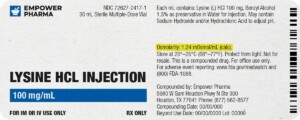
Given the vastness and uniqueness of individualized compounded formulations, it is impossible to list every potential compound we offer. To inquire if we currently carry or can compound your prescription, please fill out the form located on our Contact page or call us at (877) 562-8577.
We source all our medications and active pharmaceutical ingredients from FDA-registered suppliers and manufacturers.

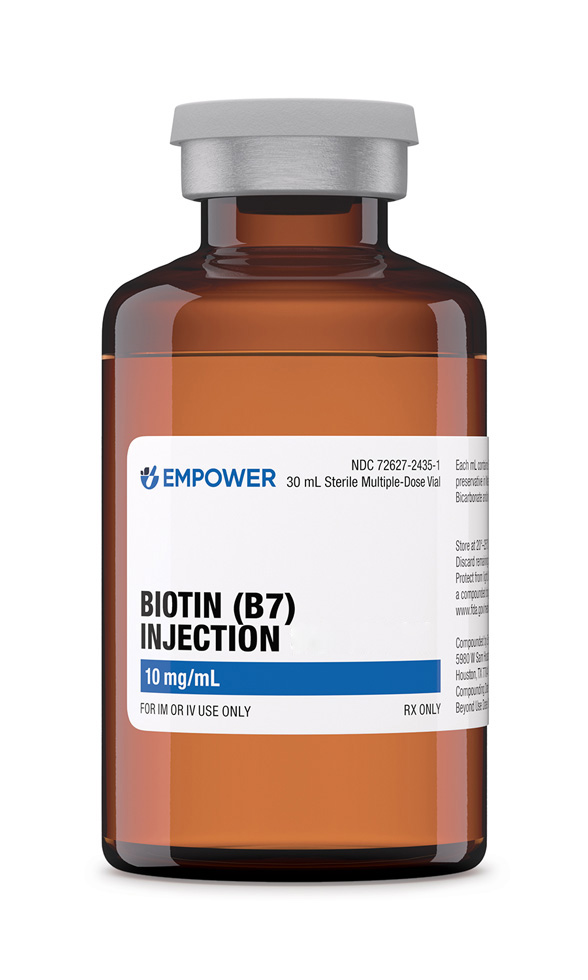
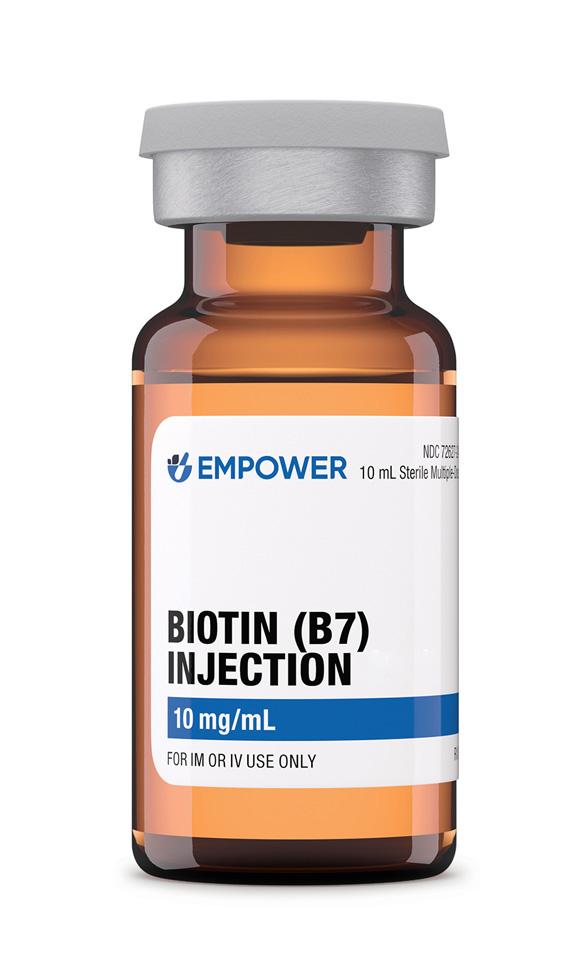
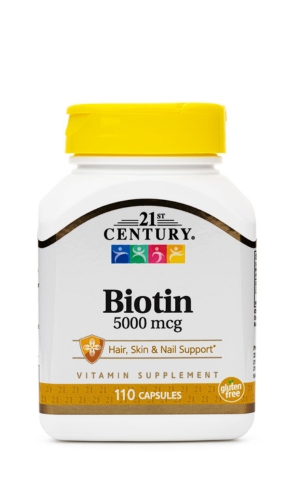 Biotin Capsules
Biotin Capsules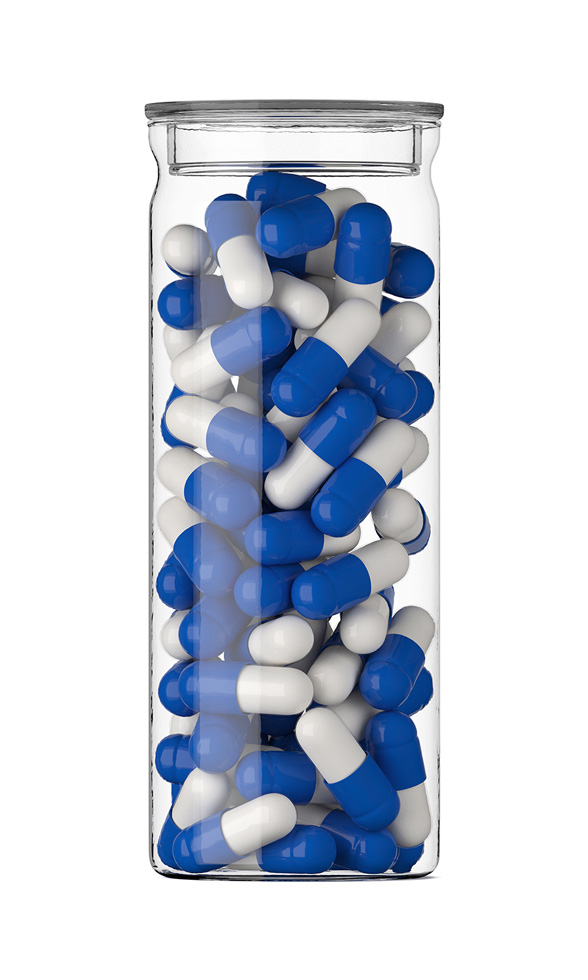 Biotin / Minoxidil Capsules
Biotin / Minoxidil Capsules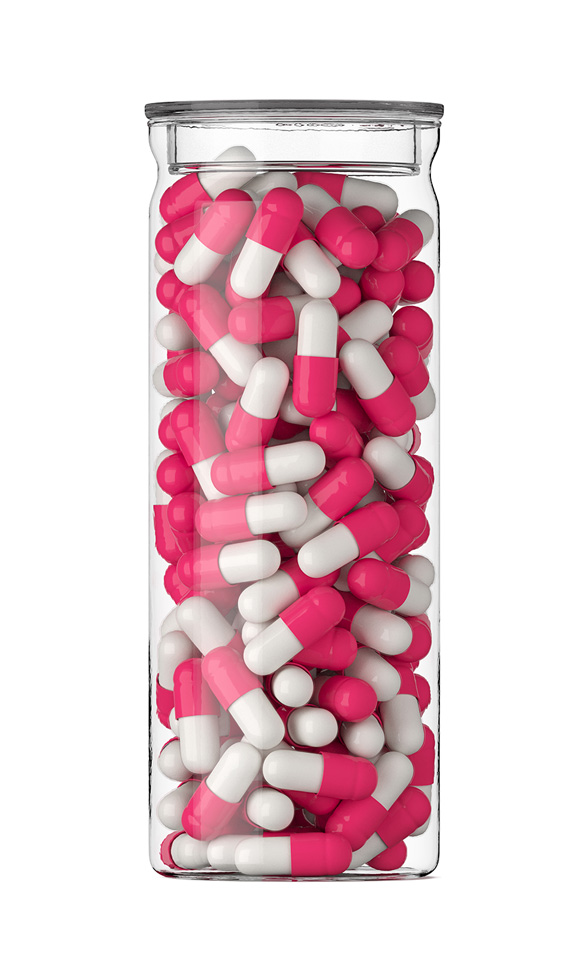 Biotin / Minoxidil / Spironolactone Capsules
Biotin / Minoxidil / Spironolactone Capsules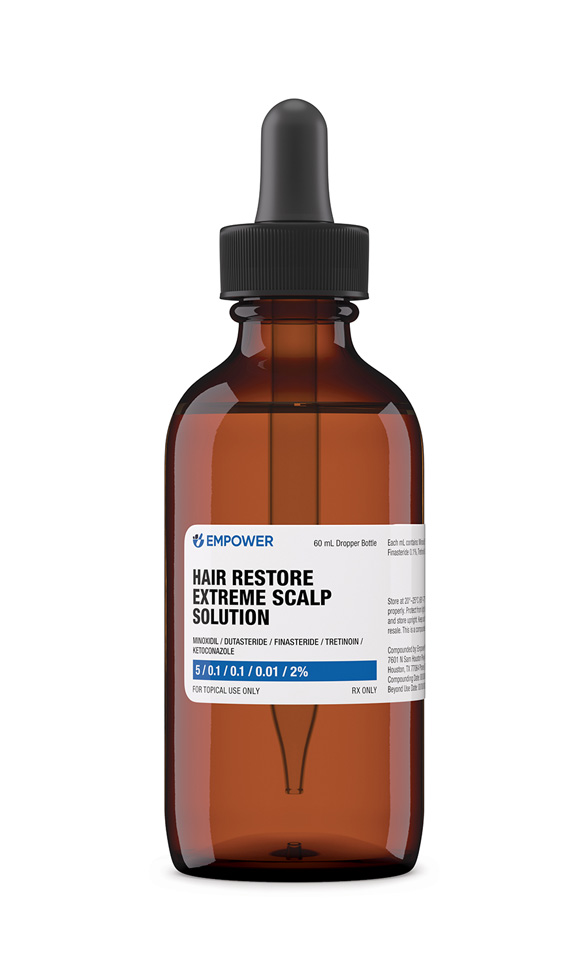 Hair Restore Extreme Scalp Solution
Hair Restore Extreme Scalp Solution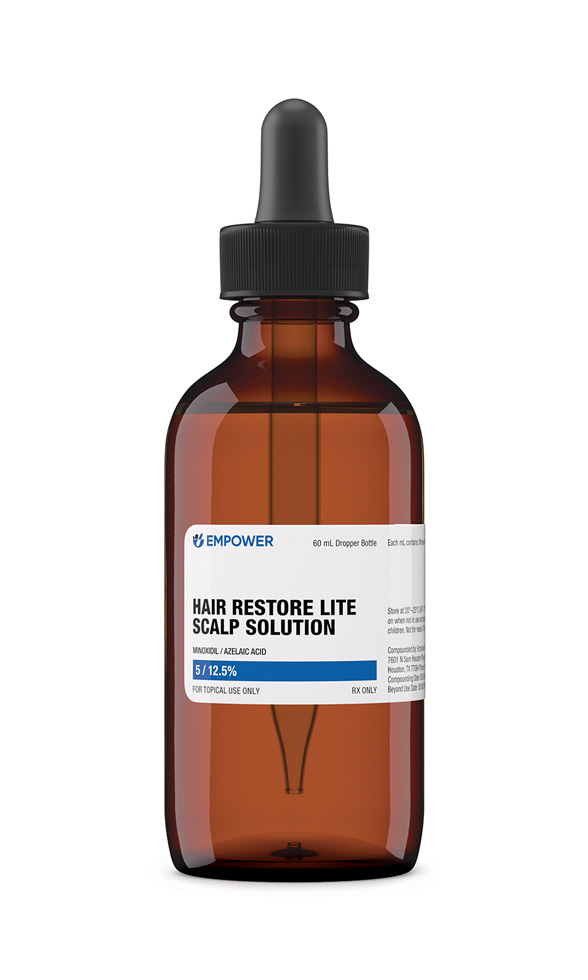 Hair Restore Lite Scalp Solution
Hair Restore Lite Scalp Solution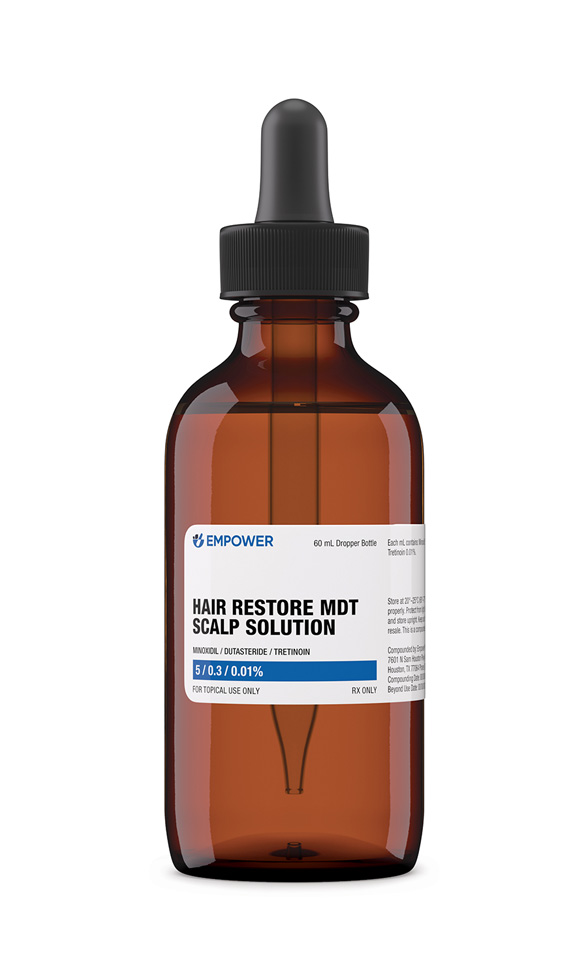 Hair Restore MDT Scalp Solution
Hair Restore MDT Scalp Solution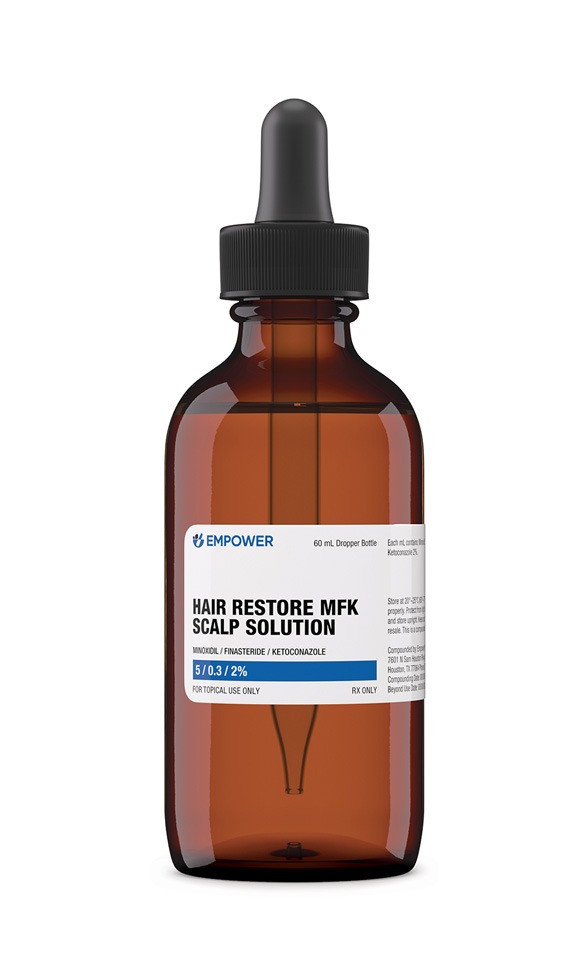 Hair Restore MFK Scalp Solution
Hair Restore MFK Scalp Solution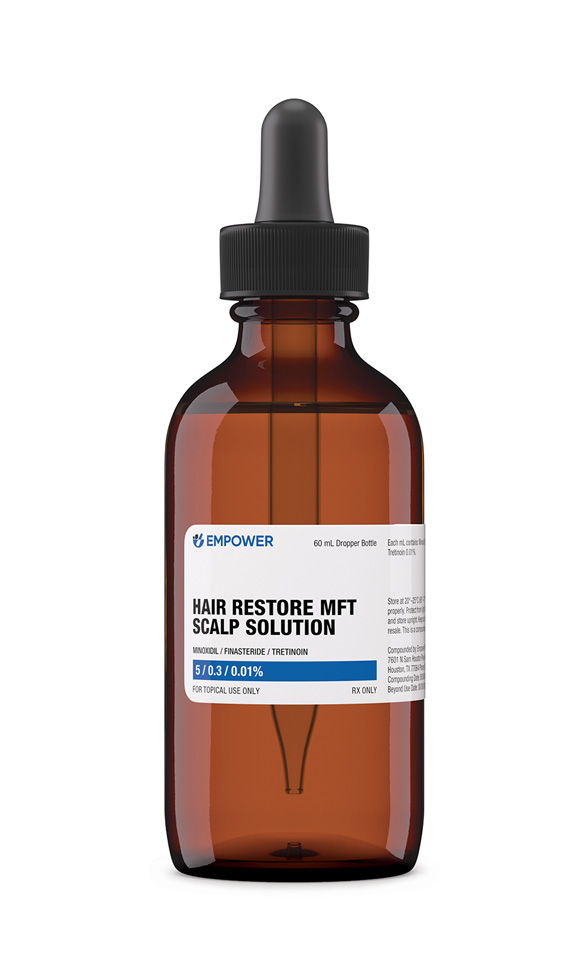 Hair Restore MFT Scalp Solution
Hair Restore MFT Scalp Solution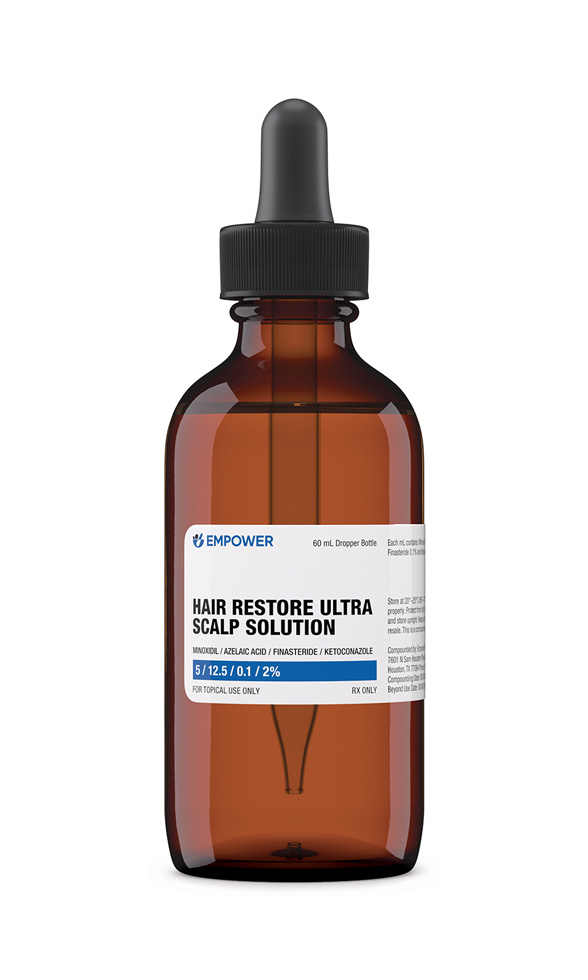 Hair Restore Ultra Scalp Solution
Hair Restore Ultra Scalp Solution